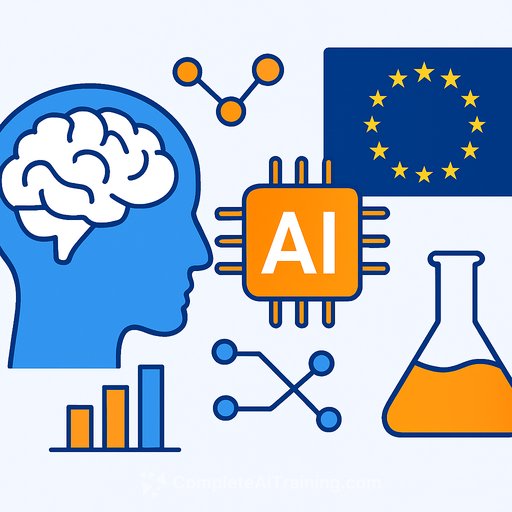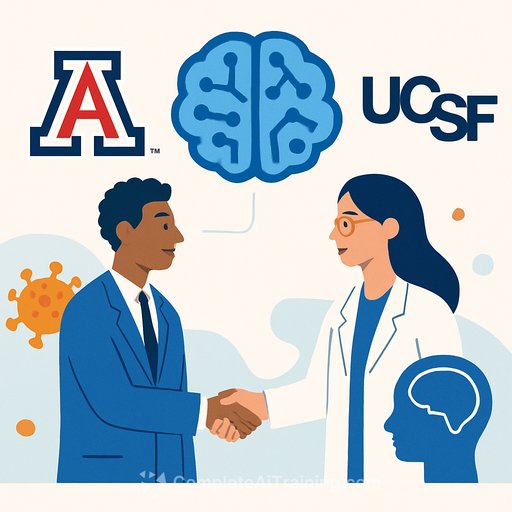NSF Commits $100 Million to U.S. AI Research Institutes: A Strategic Move Amid Global AI Developments
The U.S. National Science Foundation (NSF), in partnership with Capital One and Intel, is investing $100 million to establish five National Artificial Intelligence Research Institutes along with a national community hub. This initiative targets fundamental AI research aimed at practical applications and workforce development through outreach to schools, universities, and industry participants.
AI-Materials Institute at Cornell
Cornell University leads the AI-Materials Institute (AI-MI), focusing on accelerating materials discovery for energy, sustainability, and quantum technologies using AI. A key deliverable is the AI Materials Science Ecosystem (AIMS-EC), a cloud-based platform integrating large-language models with experimental data, simulations, images, and scientific literature. The institute will explore areas such as two-dimensional moiré structures for quantum bits, new superconductors, and molecules to remove microplastics. Partnerships with educational institutions and industry will support student training at multiple levels.
Institute for Foundations of Machine Learning (IFML)
The University of Texas at Austin leads IFML, building on foundational work with generative AI models like diffusion models that support applications such as Stable Diffusion 3. Upcoming research will extend generative AI into protein engineering and clinical imaging, focusing on handling noisy data and enhancing model reliability in health contexts. IFML also contributes to AI workforce development through a Master of Science in Artificial Intelligence degree program.
Institute for Student AI-Teaming (iSAT)
Based at the University of Colorado Boulder, iSAT develops AI partners—CoBi and the Jigsaw Interactive Agent—to assist student groups in collaborative learning through guided discussion and reasoning. These tools have been adopted by over 6,000 middle-school students and educators. The next phase includes creating a semester-long curriculum to expand AI literacy. The institute collaborates with nine universities and school districts across 15 research areas.
Molecule Maker Lab Institute (MMLI)
The University of Illinois Urbana-Champaign leads MMLI, which combines AI and machine learning to accelerate molecule discovery for medicine, materials, and clean energy. Over its first five years, MMLI has produced 166 publications, 11 patent disclosures—including six licensed patents—and two startups. AlphaSynthesis, an AI platform for chemical synthesis planning, is a notable output. Future plans include developing advanced AI tools such as language models and intelligent agents for designing new drugs, catalysts, and materials.
AI Institutes Virtual Organization (AIVO)
UC Davis heads AIVO, a national hub connecting federally funded AI institutes, government agencies, and the public. Building on a 2022 pilot, AIVO organizes events, networking opportunities, and collaboration platforms to foster a cohesive AI innovation ecosystem. It also facilitates public-private partnerships and raises public awareness of AI's potential to address societal challenges.
AI Research Institute on Interaction for AI Assistants (ARIA)
Led by Brown University, ARIA focuses on developing AI assistants that are safer, more effective, and better able to adapt to individual users, with an emphasis on mental and behavioral health applications. The institute combines research on human and machine cognition to create AI systems capable of understanding unique behavioral needs and providing real-time, personalized feedback.
Policy Context and Global AI Developments
This investment aligns with the White House AI Action Plan and Executive Order 14277 on AI education advancement. The NSF aims for these institutes to translate research into scalable solutions that improve quality of life while building infrastructure for AI education and workforce development nationwide.
Internationally, countries such as those in Europe, Israel, and the UAE are launching AI institutes, supercomputers, and safety programs, reflecting a global effort to develop AI capabilities and governance frameworks. Meanwhile, the U.S. Department of Defense has engaged top AI companies including Microsoft, OpenAI, Anthropic, Google, and xAI as key suppliers, signaling a shift in defense contracting towards commercial AI leaders and challenging established firms like Palantir.
For those interested in expanding AI expertise, resources for AI education and training can be found at Complete AI Training.
Your membership also unlocks:






